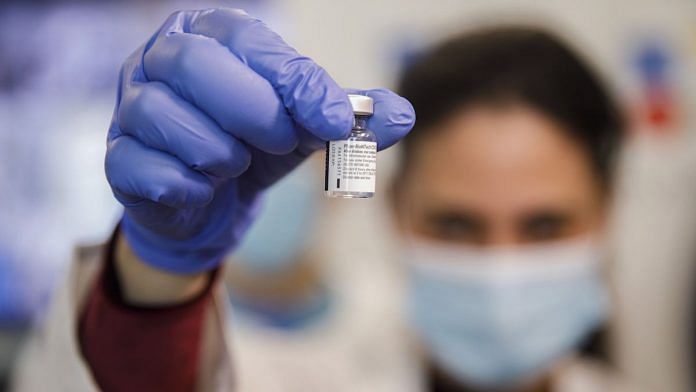The gut-wrenching scenes of almost hundred dead bodies floating in the Ganga at Bihar’s Buxar and Uttar Pradesh’s Ghazipur in early May, are a grim and tragic reminder of the devastation and loss during the second wave of Covid in India. By all accounts, these dead bodies were abandoned in the river Ganga because their families were unable to cremate them and give them dignity even in death. The families were so poor that they were unable to afford the cremation costs – inflated due to the disproportionately high number of Covid deaths during those few weeks. These regions endemically have high poverty rates that have got heightened due to the Covid pandemic since March 2020 and ensuing economic crisis. Various think tanks and expert groups have been projecting that in India, hundreds of millions will slide back into poverty due to the pandemic. The International Labour Organization last year projected this number to be around 400 million.
While this colossal human suffering continues due to the pandemic, a vulgar paradox is taking shape in form of windfall profits for the pharmaceutical companies leading to new vaccine billionaires. Since the beginning of the coronavirus pandemic, Moderna, BioNTech and CanSino, the makers of successful Covid-19 vaccines, have created at least nine new vaccine billionaires with a combined net wealth of $19.3 billion, according to Oxfam, based on its analysis of the Forbes 2021 billionaires list.
To put things into perspective, the amount is sufficient to buy enough vaccines to fully inoculate almost everyone in sub-Saharan Africa, a region whose vaccinations as of 2 May was a dismal 0.7 per cent. Apart from the new vaccine billionaires, a further eight existing billionaires with extensive portfolios in the companies making Covid vaccines and related drugs saw their wealth rise by a massive $32.2 billion.
Also read: Global supply of COVAX has suffered big blow due to Covid crisis in India: Top US official
This growing phenomenon of obscene inequalities is systemic and goes beyond the pharmaceutical companies, as we saw the top 10 billionaires of the world add over a trillion dollars to their wealth during the pandemic year of 2020. During the same period, the top 11 billionaires of India added so much to their wealth during the pandemic that just the increase could sustain the MGNREGA scheme for 10 years or our health ministry for 10 years. This outrageous increase in the wealth of the billionaires has happened in tragic times of more than three million deaths due to Covid, millions of people losing their jobs and livelihood and finding it hard to put food on their table or get treatment when they are sick.
Even this unprecedented crisis does not invoke fundamental and systemic scrutiny of the political choices we make, and economic structures we have created that ironically legitimise and defend mammoth profits (in the name of intellectual property and patents on Covid vaccines and related technology) over saving lives of millions by providing vaccines as public goods. Such levels of inequality are not sustainable and will lead to breakdown of social and political order. And endanger public health.
Also read: BioNTech founder Ugur Sahin joins world’s 500 richest after UK approves Covid vaccine
Glaring vaccine inequality
Vaccine inequality is a case in point. Surprisingly, there is no public outrage against the stark vaccine inequality and shortage that we are witnessing in times when we are aware that the Covid vaccine is our only hope against the pandemic.
The Covid pandemic is being perpetuated by a “scandalous inequity” in vaccine distribution, the head of the World Health Organization (WHO) recently said. As I had pointed out in my Scroll article, “rich countries representing just 16% of the world’s population have secured half of the leading vaccines. Of the 383 million doses of COVID-19 vaccines administered globally till April, nearly 50% went to just the US, EU, and UK, which together represent only 11% of the world’s population.” Reports suggest that the US, UK, Australia and Canada have enough vaccines to inoculate their entire population two to three times. It is ironic that India, known as the pharmacy to the world, is now struggling with acute vaccine shortage and so far, has been able to vaccinate only 3 per cent of the population with both the shots.
This vaccine crisis and inequality is the result of vaccines being covered under patents and the intellectual property rights regime. It is important to welcome the role of India in this context and underscore that the initial proposal for a patent waiver was made by the Indian and South African governments at the World Trade Organization (WTO). The US and more than 100 other countries have also now backed the waiver of intellectual property protections for COVID-19 vaccines as an important step in the right direction. However, the path ahead with winding WTO negotiations is going to be long and arduous, and millions of lives will continue to be at stake.
Also read: Why some countries don’t want to wait for Covid vaccines from superpowers
History will judge us during this unprecedented humanitarian crisis not by the scale of devastation caused by the virus or the fact that the country was literally gasping for oxygen, but by the lives lost due to the moral ambiguity of our economic and political choices — the choice of defining public goods and public interests as subservient and secondary to the idea of private profit. Alternatively, we could use this crisis as a watershed moment to reboot into a new equal, just and sustainable world.
Amitabh Behar is the Chief Executive Officer of Oxfam India. Views are personal.



